この記事は次の言語でも読めます:日本語
In late March, I attended 31st Annual International Technology and Persons with Disabilities Conference in San Diego. At the conference, you can find the latest technology service and products which support and maximize abilities of people with disabilities in daily life, at school, or workplace. There were many major high tech companies such as IBM, Microsoft, Google attending the conference and giving presentations throughout the 3 days. Not only private companies, but also governmental and educational organizations came to introduce their programs for people with disabilities.
About 3,000 people joined this conference this year, and almost half of them were people with disabilities. Especially I saw many people who are visual impaired and use white canes. Then I realized the huge impact that the progress of technology gives people with visual impaired.
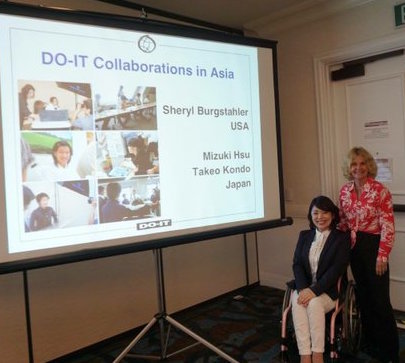
At first, I was only planning to go there as an attendee. However, Sheryl Burgstahler who is a director of DO-IT Program in University of Washington (*1) asked me to give a presentation with her. DO-IT Program has been implementing locally in Asian countries including Japan. At Sheryl’s session, I got 15 minutes to talk about education and employment environment for people with disabilities in Japan.
After my presentation, some attendees asked me questions. One of them is “Through your research, have you found any differences between American companies and Japanese companies about employment?” Before I started my research in Syracuse, I have visited about 15 companies in Tokyo including Japanese companies and Japan branch offices of American companies. Then I found American companies are taking the issue of employment for people with disabilities more seriously. The American companies already started some innovative programs to create a better employment environment, but are still thinking that they should do more, because they want to hire talented people with disabilities. Also those companies were very active listeners to what I concern about employment issues in Japan.
On the other hand, Japanese companies are more conservative. “We have done this, this, this.” The companies explained in a straightforward manner and I didn’t see they want to do something more proactive for employment for people with disabilities. When I introduced that some American companies has implemented projects to raise talented people with disabilities by utilizing company’s resources, Japanese companies said “We can’t do that.” They seemed they were not interested. Then I found the big differences of their views of employment issues for people with disabilities between Japanese companies and American companies.
I finished my presentation on the first day. From the next day, I went to other companies’ booths and the exhibition. I would love to introduce 2 products that I have found at the exhibition.
1. Braille Smartwatch
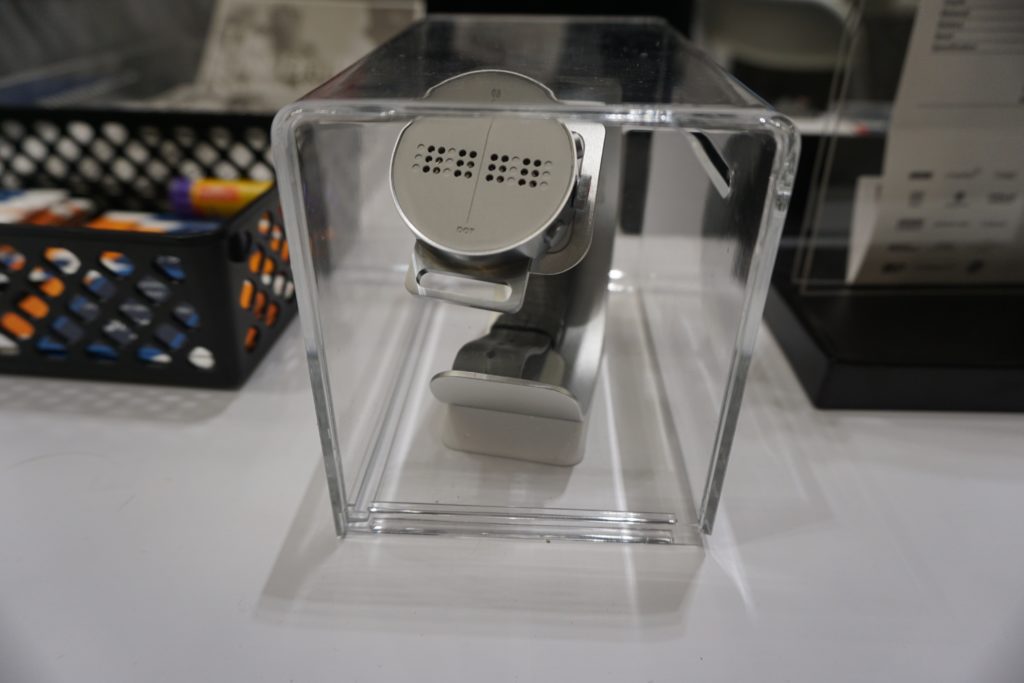
The Braille smartwatch is produced by a Korean company, Dot Incorporation. I have read about this product before from some online news, so I was very excited to see it in person. The watch has a very stylish and simple design. At the booth, there is also a smartphone sized one which can show pictures and figures with dots. Fore more detail, http://fingerson.strikingly.com/
2. UbiDuo
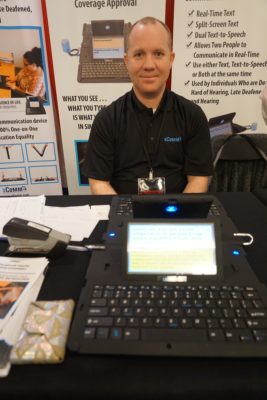
UbiDuo, an impressive communication tool between people with and without hearing impairment. CEO Jason (In the picture) who has hearing impairment showed me how to use it.
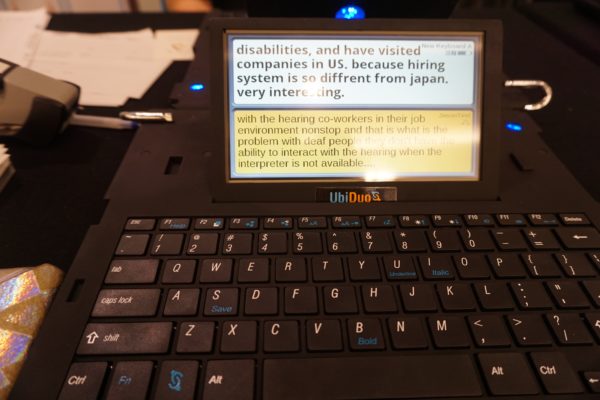
It is like a regular keyboard. There are two keyboards, my side and Jason’s side. What I type shows up on the white part, and I can see Jason’s reply on the yellow part. Easy to read, write and communicate. These keyboards are connected and can be folded. This will be really helpful at workplace. For more detail, https://www.scomm.com/
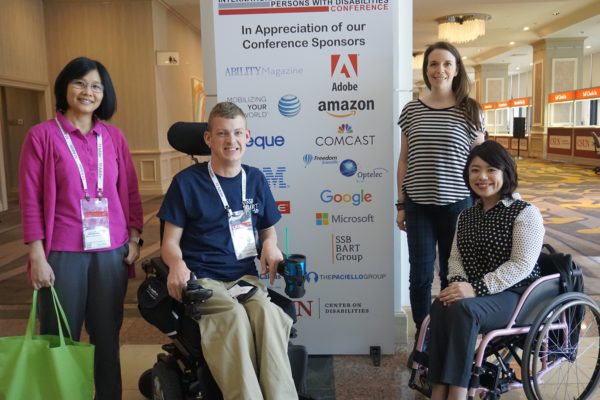
At this conference, I could gain useful information and meet some people who I have met through interviews in other states as well as new people from Japan. I had gained lots of energy from the conference! I hope I can come back to this conference every year to obtain the latest technology and innovative ideas!
*1 DO-IT interview reports are here.
